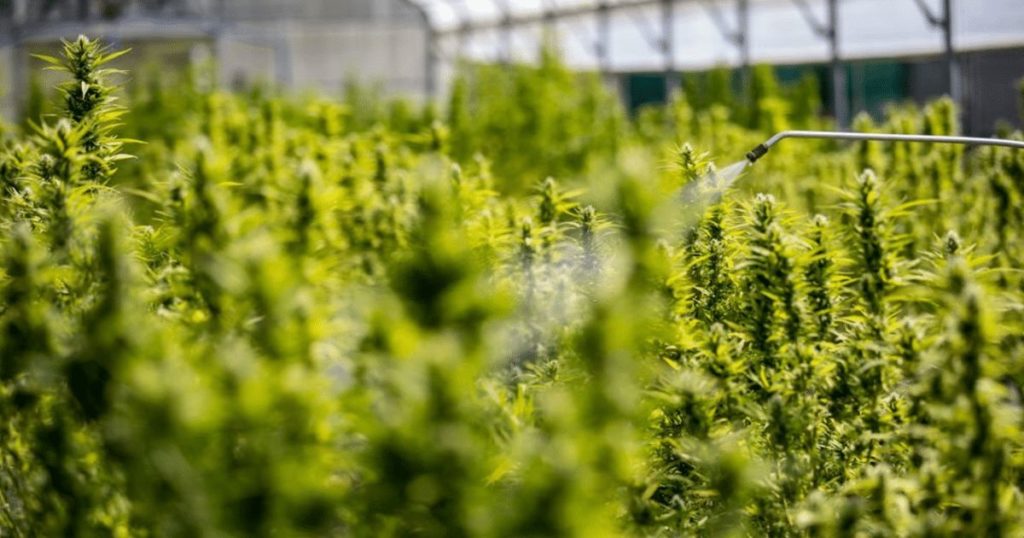In what is just one more hit against small cannabis farmers in California, they have seemingly been left out of a relief fund proposed by Governor Gary Newsom that would pay farmers to fallow – not grow their crops – for the year in an effort to conserve water during the state’s second brutal drought in the last decade.
The proposal was made with some of California’s largest water suppliers and would earmark a total of $268 million for farmers in an area situated near two important watersheds that come from Northern California’s Sierra Nevada mountain range. These farmers would receive upfront payments if they voluntarily agreed to leave their fields fallow this year.
The Proposal
Governor Newsom’s proposal aims to target farmers who grow water-intensive crops, such as alfalfa, nuts, and rice.
This specific part of the proposal is a part of a larger initiative put forward by Governor Newsom, called a Water-Quality Control Plan, passed just weeks ago, that would see a total of $2.9 billion earmarked for freeing up a dedicated yearly fresh water supply, while also conserving, rehabilitating, and restoring fish and animal habitats, aquifers, reservoirs, and other water basins through compulsory conservation practices.
Notably not on the list of farmers who will be offered this payout are cannabis farmers, who are already facing an uphill battle to have the cultivation of cannabis recognized as an agricultural practice, says the executive director of the Mendocino Cannabis Alliance, Michael Katz, according to MJBizDaily.
“It’s an unfortunate double standard that some farmers are deemed worthy of receiving this kind of support, but cannabis farmers, who are still fighting for recognition of cultivating cannabis plants as agriculture, are in a position where they have no ability to pause their operations and their tax burden without endangering their ability to remain in the licensed market. If we don’t see more support programs that factor in the drought … we will see the continuing loss of small independent cannabis businesses.”
An Uphill Battle
Unfortunately, fighting for the right to have cannabis considered an agricultural practice, and being left out of a proposal earmarked specifically for farmers to help lessen the impact of water usage during an extreme drought is not the first time cannabis farmers have fought the law.
In fact, since California legalized the recreational use of cannabis back in 2016, cannabis cultivators have seemed to do nothing but fight to have the same rights as other farmers.
One of their biggest issues stems from the fact that many banks and financial institutions deny service to cultivators, retailers, and manufacturers, due to the fact that cannabis is still federally illegal. This leaves everyone in the cannabis industry having to carry cash around – which is dangerous – or unable to take out things like loans to grow their businesses – which leaves them stagnating.
[Related Reading: Orange County, California is a Massive Marijuana Desert. Why?]
In an article entitled California Marijuana Growers Can’t Take Much to the Bank, members of the Ohio State News team spoke with banks and financial institutions in California and came to the following conclusion: “Of the banks and credit unions contacted by the researchers, most were not knowingly involved in the cannabis industry. Bankers reported being hamstrung by ambiguous federal guidelines that pose a real risk to financing cannabis, largely because banks are required to report suspicious transactions to the federal government. They might be seen as players in a criminal enterprise even by providing banking services to employees who work for licensed members of the cannabis industry, or they could lose big on lending if cannabis-related assets backing a loan were seized by federal agents.”
Another issue that the California cannabis industry is facing is so-called NIMBYism – an acronym that stands for Not In My Backyard – a phenomenon in which residents of a neighborhood oppose certain developments in their area.
Orange County is currently going through this right now. Despite the fact that 52% of the county’s residents voted in favor of legalizing recreational-use cannabis, the county refuses to allow retail stores, manufacturers, or grow-ops within the county limits.
Cannabis Farmers in California are facing yet another blow to their industry in terms of being left out of Governor Newsom’s following proposal. If the industry continues to take hits from policymakers, it’s likely that it will have a difficult time weathering the oncoming storm that California’s drought will being them. It’s high time that legislators and policymakers at the state level begin to include cannabis farmers in any and all policies, proposals, and plans that affect the state’s other farmers.
Come chill with us every week at the Friday Sesh for a freshly packed bowl of the week’s best cannabis news!


















